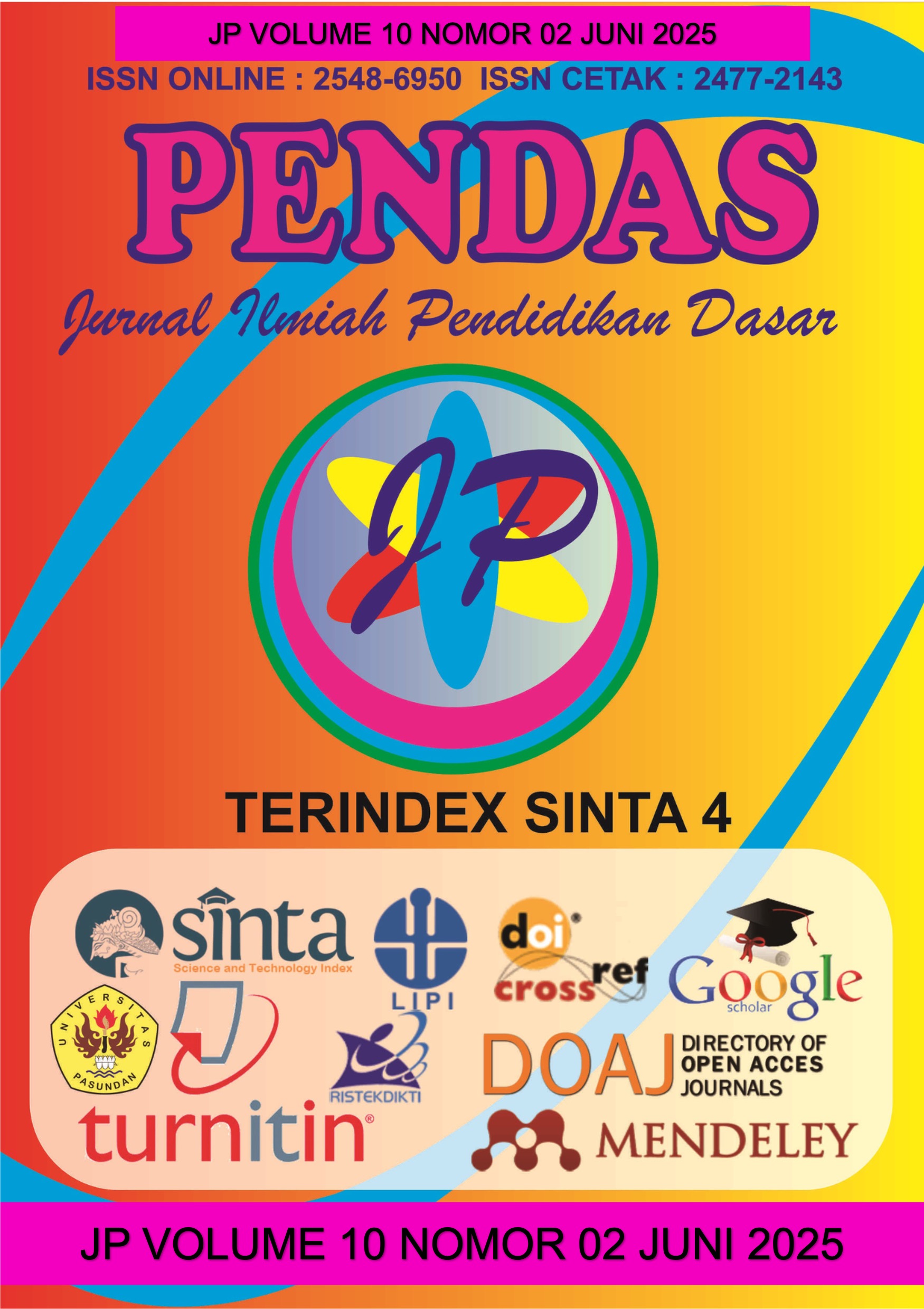PENERAPAN TEORI BELAJAR HUMANISTIK : STUDI KASUS IMPLEMENTASI METODE KERJA KELOMPOK PADA MATA PELAJARAN IPAS PADA MATERI BENTANG ALAM DAN KETERKAITANNYA DENGAN PROFESI MASYARAKAT DI KELAS IV SD NEGERI 012 KUARO
DOI:
https://doi.org/10.23969/jp.v10i02.25815Keywords:
humanistic learning theory, Group Discussion, Method, Science, Social Studies, Learning Motivation, Student EngagementAbstract
This study addresses the limited student engagement and low motivation observed in Grade IV at SD Negeri 012 Kuaro, where Science and Social Studies (IPAS) instruction remains teacher-centered. The research aims to explore the implementation of humanistic learning theory through group work as an alternative approach to enhance student participation and learning outcomes, particularly in the topic “Landforms and Their Relationship to Community Professions.” Employing a qualitative case study design, data were collected through observation, interviews, and documentation, and analyzed using Miles and Huberman’s interactive model, which involves data reduction, data display, and conclusion drawing. The findings indicate that the integration of group work based on humanistic principles fosters a more inclusive and student-centered learning environment. This approach enhances students’ self-confidence, collaboration, and intrinsic motivation. The teacher’s role shifted to that of a facilitator, supporting students’ emotional and social needs while promoting active participation and critical thinking. The study concludes that applying humanistic learning theory through cooperative learning strategies effectively creates meaningful learning experiences and aligns with the principles of the Merdeka Curriculum. These findings support the broader adoption of humanistic approaches to enrich IPAS instruction in elementary education.
Downloads
References
Johnson, D. W., & Johnson, R. T. (2019). Cooperation and the use of cooperative learning in schools. Edina, MN: Interaction Book Company.
Rogers, C. R., & Freiberg, H. J. (2015). Freedom to learn (3rd ed.). New York, NY: Pearson Education.
Sardiman, A. M. (2011). Interaksi dan Motivasi Belajar Mengajar. Jakarta: Rajawali Pers.
Schunk, D. H. (2020). Learning theories: An educational perspective (8th ed.). Boston, MA: Pearson.
Slavin, R. E. (2017). Educational psychology: Theory and practice (12th ed.). Boston, MA: Pearson.
Woolfolk, A. (2013). Educational Psychology (12th ed.). Boston: Pearson Education.
Yin, R. K. (2018). Case study research and applications: Design and methods (6th ed.). Thousand Oaks, CA: Sage Publications.
Hasanah, L., & Ramdani, M. (in press). Implementasi model pembelajaran kolaboratif dalam meningkatkan keterampilan sosial siswa. Jurnal Ilmu Pendidikan.
Kemendikbud. (2021). Capaian Pembelajaran Kurikulum Merdeka Jenjang Sekolah Dasar. Diakses dari https://kurikulum.kemdikbud.go.id
UNESCO. (2020). Education in a post-COVID world: Nine ideas for public action.
Hidayati, N., & Suryana, D. (2021). Efektivitas Metode Kerja Kelompok terhadap Peningkatan Pemahaman Konsep IPA Siswa Sekolah Dasar. Jurnal Ilmiah Pendidikan Dasar, 8(2), 112–120.
Maulana, I. (2022). Pembelajaran Kontekstual dalam Mata Pelajaran IPAS pada Kurikulum Merdeka. Jurnal Inovasi Kurikulum dan Pembelajaran, 3(1), 55–63.
Purwanto, A. (2020). Peran guru sebagai fasilitator dalam pembelajaran abad 21. Jurnal Pendidikan dan Pengajaran, 53(2), 112–121.
Putri, A. Y., & Ramdhani, M. A. (2020). Penerapan Model Pembelajaran Humanistik dalam Meningkatkan Aktivitas dan Hasil Belajar Siswa. Jurnal Pendidikan Humaniora, 8(1), 35–41.
Suyatno. (2016). Humanistik dalam pembelajaran: Konsep dan aplikasi. Jurnal Pendidikan Humaniora, 4(1), 45–53.
Downloads
Published
Issue
Section
License
Copyright (c) 2025 Pendas : Jurnal Ilmiah Pendidikan Dasar

This work is licensed under a Creative Commons Attribution 4.0 International License.














































